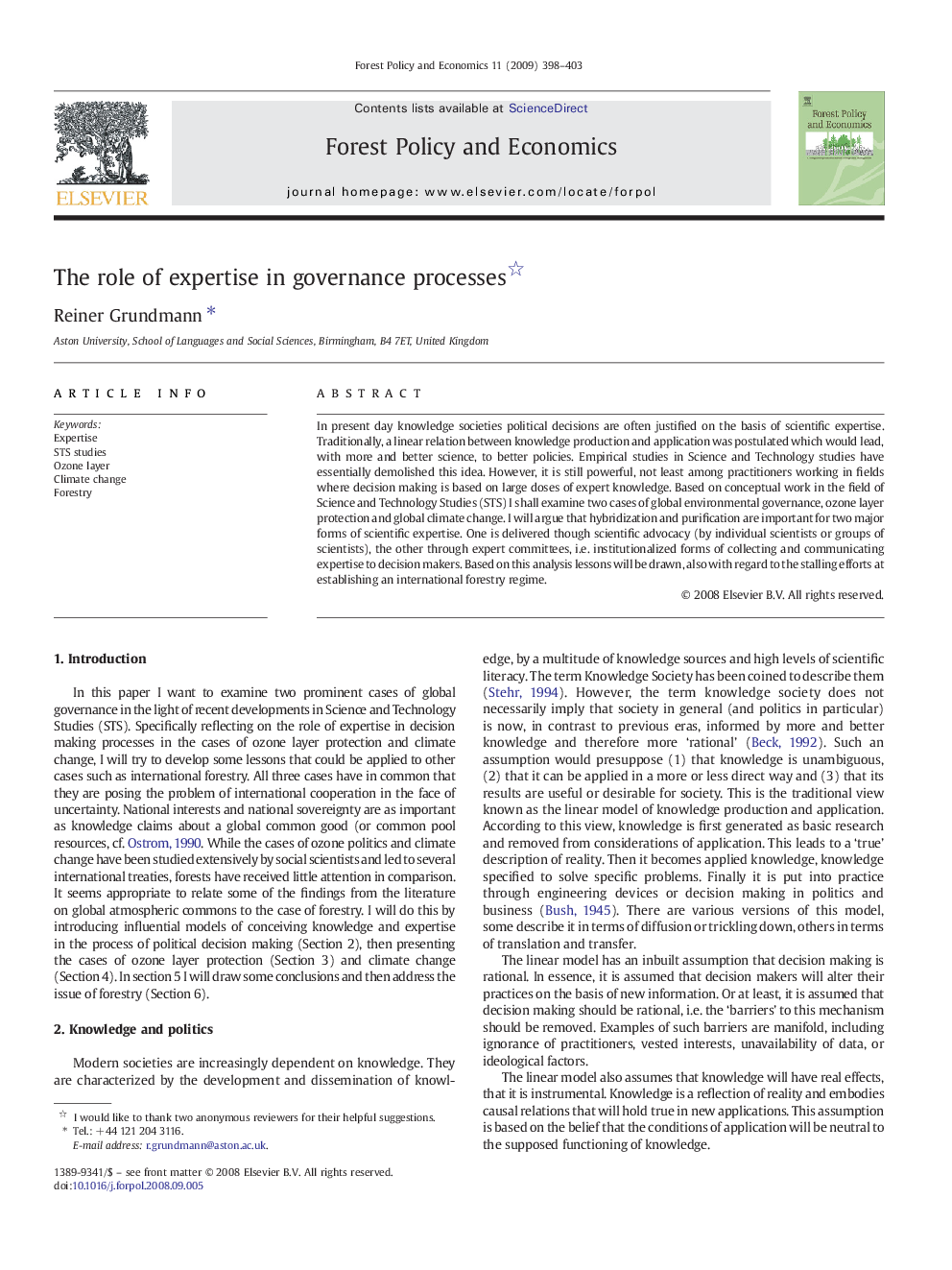| Article ID | Journal | Published Year | Pages | File Type |
|---|---|---|---|---|
| 91292 | Forest Policy and Economics | 2009 | 6 Pages |
In present day knowledge societies political decisions are often justified on the basis of scientific expertise. Traditionally, a linear relation between knowledge production and application was postulated which would lead, with more and better science, to better policies. Empirical studies in Science and Technology studies have essentially demolished this idea. However, it is still powerful, not least among practitioners working in fields where decision making is based on large doses of expert knowledge. Based on conceptual work in the field of Science and Technology Studies (STS) I shall examine two cases of global environmental governance, ozone layer protection and global climate change. I will argue that hybridization and purification are important for two major forms of scientific expertise. One is delivered though scientific advocacy (by individual scientists or groups of scientists), the other through expert committees, i.e. institutionalized forms of collecting and communicating expertise to decision makers. Based on this analysis lessons will be drawn, also with regard to the stalling efforts at establishing an international forestry regime.
